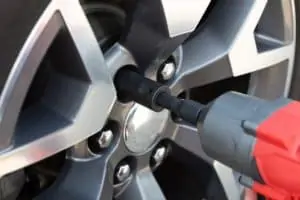Dealer Parts Department Managers are the unheralded glue of a well-managed dealership. A good Parts Manager has the skill to carry the parts the New Car Department needs to upsell a customer (floor mats anyone?), refurbish used cars quickly and cost effectively, and keep the Service Department working fast and efficiently. And all of this is done with little advertising support and while balancing nearly impossible objectives for obsolescence, gross profit and sales growth.
Why the Parts Department Matters
There is no area of the dealership where greater growth can be more easily captured than the Parts Department. And as the new car profit boom starts to decline, parts sales and profits are going to be critical for long-term dealer financial health. The good news is that capturing that growth is not as expensive and difficult as you may think.
Not an Industry Focus
Ongoing advertising efforts have trained customers to think about dealerships for new cars, used cars and service. Unfortunately, this means the Parts Department is not top of mind for buyers making it difficult for dealers to grab a slice of the $300B+ national parts and accessories marketplace.
And, if you need proof of the importance of the Parts Department to the dealership, just call a dealership and listen to the call routing options. The first option is always new car and the last option is almost always parts.
The Keys for a Successful Parts Department
Even with a lack dealer and automaker focus, there are tremendous opportunities for dealers who provide the right mix of service, marketing and sales. The following are common traits of the most successful Parts Departments.
- Focus on the Customer
- Carry the Right Stock
- Create Job Security
- Focus on Profit Dollars
- Market Yourself
- Ask for the Sale
Customer Focus Matters
It’s easy to forget that the fundamentals of running a dealer parts department. To be effective, you need to tell your customers what you’re selling, have the part available to support the customer’s delivery needs and provide technical support. Advanced software and modern tools help increase customer contact, but this is only worthwhile if opportunity is converted to sales.
Build Good Habits
Great service sells parts and bad habits block great service. And unfortunately, the most cherished competencies of Parts Managers and Parts Countermen create the worst habits. Hiring a Management Consultant to review your policies and reward the right habits will both eliminate waste and increase sales. If you want to see how bad habits are formed, watch this video.
Reward Succes – Parts Department Pay Plans
Pay plans incent Parts Departments to avoid mistakes to minimize operating costs. Because employees manage their business to achieve incentives, Parts Managers are incentivized to avoid taking risks that can increase sales. So how do pay plans incent bad behavior?
Focus on Obsolescence
Incenting Parts Manager for minimal obsolescence pushes high performing Parts Managers to avoid stocking parts to reduce returns. And you can’t sell parts you don’t carry. So, while incentivizing Parts Managers to reduce obsolescence makes good financial sense, too much emphasis on obsolescence can suppresses sales and leads to unhappy customers.
Stop Targeting Zero Returns
Accepting returns is a cost of selling parts. Incenting a near zero return rates passes cost onto your customers and creates a series of sales limiting service levels. Some of these are:
- There are very few Parts Managers who like the factory return policies, yet they commonly pass those same policies onto their customers. If you don’t like the policy, your customers won’t either. And as you increase volume, you will easily sell returned parts.
- Parts Countermen are terrified of returns. So, they second guess systems with factory parts, avoid using automated platforms and sabotage automation. This slows performance and limits productivity.
Expand Your Inventory
If you stand in a Parts Department , you will hear the Parts Counterman turn away a customer who is ready to buy because the Dealership doesn’t have the part in stock. And you are unlikely to see the counterman record the lost sale. Without parts in stock and a mechanism to record lost sales, stocking procedures become sales suppression policy.
It is good business practice to reduce money tied up in inventory. However, you can’t sell parts you don’t carry. And modern financing can offer a line of credit to free up dealership cash and remove a major restriction for carrying more ports. So, it’s beneficial for dealerships to set the DMS to record lost sales and trust your systems to inform stocking decisions.
Target Your Cross Docking
Some customers don’t want to wait until tomorrow to receive their parts. Automakers have done a great job of providing daily deliveries with high facing fill rates which makes it possible to cross dock parts. And while this is great when selling collision parts and powertrain components, not every customer will accept “next day” availability. And customers who need their parts right away will go to the aftermarket to find those parts if you don’t have them in stock.
Create Job Security
Parts Departments are not the heroes of the dealership and as such are the first to lose their job in an economic downturn. So, countermen are justifiably afraid of losing their job. This creates an incentive to insert themselves into every administrative process in the dealership and resist any form of automation. Improving job security will help remove countermen as an administrative bottleneck and increase sales.
Know when to Listen to Automakers
Factory programs and advice is often useful. And while the program may not be specifically tailored to your market and customers, a lot of effort is taken to make the programs adaptable to your needs. So, understand the motivation behind factory programs and sign up if they align with your needs. And if you want to make sure that the factory program DOES work for you, volunteer to be a pilot dealership so you can influence program construction.
Choose the Right Parts Department Software
The RIGHT technology can improve every aspect of Parts Department operation. And choosing the right technology can be tricky. So instead of relying on software salesmen and purchasing redundant systems, do your own research or hire a consultant guide you through the purchasing process. The right combination of software packages can reduce your costs and increase volumes. Click here to find a full list of qualified software companies.
Change Your Focus
Small mindset changes can make a big difference to Parts Department Approach. since maintaining your current behavior and policies will perpetuate the same results, growing often means changing some key policies and habits. The good news is changing just a few simple things can greatly improve how your department performs. Some of these include:
Revolving Credit Line
Work with your controller to get a revolving credit line for your parts inventory. There’s no reason to tie dealership cash up in parts inventory and the result will make both you, your controller and your Dealer Principal happy.
Focus on Dollars not Percentages
You don’t pay your bills on percentages; you pay them with dollars. So, work with the General Manager to change your bonus plan so you get rewarded for gross and net profit dollars instead of gross profit percentages. After all, which would you rather have 18% of $500K or 15% of $1M.
Change your Pricing Focus
Your customers don’t care about your margins. DIY customers care about how competitive you are and your wholesale customers care about THEIR margins. So, while it’s easy to use MSRP and cost to set pricing, it’s worth the extra effort to use matrix and other market-based pricing methodologies to set customer pricing.
Avoid Floating your Customer’s Cash Flow
You are not running a professional collection agency or a bank so there’s no reason to play the late payment game with your body shops. Paying a small fee to an outside billing agency can do a lot for your profitability, customer relationships and free up time.
Market Yourself
Odds are very high that the only people who know how well you operate are your employees. And while that matters, it’s also important that your customers know how great you are. So, developing and executing a good marketing plan can help you increase sales. The keys to success are:
- Product: Carry the right inventory to service your target audience
- Services: Talk to your customers and build your service levels to meet their needs.
- Get Out There: Don’t be afraid to tell your customers how great you are and empower your sales team.
- Advertise: Send out flyers, build your presence on your company website and start some digital marketing activities.
- Ask for the Sale: Send your parts countermen to sales training so they can capture more sales.
Seek Market Opportunity
There is money to capture everywhere so don’t limit the business to existing customer groups. And don’t assume that any customer group is out of reach. The table below provides a list of customers and the opportunity size for each customer group.

Start Slow and Ask for Help
There is a lot of potential growth, and you don’t have to capture it all at once. Instead, build the right service levels to keep your customers coming back, and start small. And modern tools make it easy to start small and scale your business as you grow.
Available Resources
Software: Click here for a list of pre-qualified software providers
Consulting Services: Click here to learn more about services 3NG Consulting offers.
Focus on Mechanical Wholesale: Click here for the 7 keys to success for the Mechanical Wholesale marketplace.






